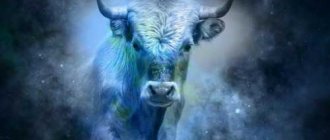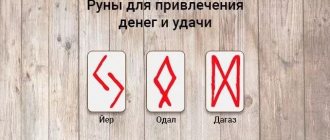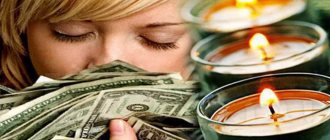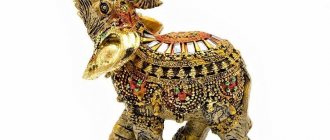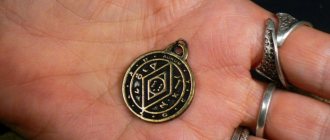Only after being born, each person acquires a certain code of fate and a personal set of personal characteristics. Therefore, people born in the same year have similar character traits. They also feel the impact of approximately the same time period.
Of course, they will have different life situations, since their character and fate will be influenced by the full date of birth. The Feng Shui forecast for each day is based on this knowledge and will help you understand what events to prepare yourself for today or tomorrow. Find out more about it from this material.
Features of Feng Shui technology
Find out what awaits you today - Horoscope for today for all zodiac signs
Due to numerous requests from subscribers, we have prepared an accurate horoscope application for mobile phones. Forecasts will arrive for your zodiac sign every morning - it's impossible to miss! Download for free: Daily Horoscope 2020 (available on Android)
According to the Chinese horoscope, all people are divided according to their personality characteristics, which are presented as a combination of 8 hieroglyphs. Moreover, for all hieroglyphs there is a correspondence in the form of a specific animal sign and one of the elements.
It turns out that each person is a unique combination that combines 5 elements in certain proportions. And due to the interplay of these combinations, there are such strong differences between people, and because of this, their fates are so different.
In this case, it is also possible to divide each of the time periods (year, month, day or specific date) into eight hieroglyphs. All elements act differently on each other (one can weaken the effect of the second element or enter into dissonance with it), as a result of which all time intervals have a different effect on a person.
For example, a person born in the year of the Dog can use the positive influences of the year of the Tiger, because the Tiger and the Dog are harmonious signs. As for the Monkeys, on the contrary, they may experience difficulties, since for them the Tiger is the main antagonist. People born in the year of the Monkey can worsen their situation if they start an important business on the day or month patronized by the Tiger.
Of course, this is a fairly simplified technique that explains how time affects a person. Today, there are various special techniques that can be used to predict future events. But this is quite enough to realize how important this forecast is.
In addition to personal techniques, many methods and formulas are also known that will allow you to create a general description of each day. At the same time, it is possible to assess how favorable one or another of the periods of time is to carry out certain events.
How to sleep according to feng shui
Sharp corners should not look at the bed, as unfavorable Sha energy flows from them. The person will not get enough sleep, will be irritable in the morning and generally unproductive.
Avoid thorny plants, shelves hanging above the bed and other objects in the bedroom.
Bed location
It is uncomfortable to sleep at night and in line with the window and door, especially with your feet facing the exit. There should be a wall behind the head of the bed; emptiness leads to a feeling of insecurity. A mirror hanging opposite the bed will also cause discomfort.
Maintain an atmosphere of relaxation and peace with a color scheme. Choose neutral, light wallpaper. If the bedroom is located in the east, choose green; in the northeast, yellow is appropriate; in the southwest, pink or beige.
Methods for making a forecast in the art of Feng Shui
For example, in predicting the day, Feng Shui uses the “Twelve Indicators of Luck” technique, which allows you to determine how favorable certain days or events will be for a person. This is one of the main ways of general forecasting. If you believe in the theory of indicators of luck, then on some days all a person’s undertakings are destined to end in failure, and on others, on the contrary, they are fulfilled almost instantly. In addition, on some days of the week it is better to practice self-development and personal growth, and on others - to focus on long-term and stable projects.
In addition, in Feng Shui forecasting there is another technique called the “28 lunar stations” (or 28 constellations). Anyone can also turn to her for help; it is based on choosing the ideal date to accomplish certain significant events. This method is very old, it is used not only in the art of Feng Shui: twenty-eight lunar stations must be taken into account in the process of planning important dates and events with a further perspective (extending over years and decades). As for matters of medium importance, lunar stops may not be taken into account for them.
Xuan Kong Da Gua is an extremely powerful technique based on the mutual connection between people, time and space. To use this method effectively, it is important to take into account the person's Gua number. At the same time, the 3rd year and month are also taken into account, as well as the days of significant evils and defeats, destructive days - all this data should be taken into account when making a forecast, since they can significantly influence further success in life.
The forecast also uses the characteristics of the lunar day and the peculiarities of the Moon’s passage through the zodiacal constellations. Even if these techniques do not relate to Chinese metaphysics, they still have a very significant impact on the state of the human energy body and people’s mood.
Features of the Chinese calendar: the beginning of the year and months
Beginners to Feng Shui often ask why each month of the Chinese calendar begins on a date other than the new moon.
Another regular question from beginners: why does the start date of the New Year according to the Chinese calendar differ in different sources, why is the New Year celebrated twice.
The Chinese calendar is a phenomenon about which you can write a separate book.
According to legend, the Chinese agricultural calendar Xia was introduced into use by the legendary Yellow Emperor Huang Di more than four and a half thousand years ago. Huang Di is credited with authoring many classic works, including the seminal medical treatise Huang Di Nei Jing, as well as the short poem Yinfujing, revered in Taoism.
It is believed that the first year of the Chinese calendar was 2698 (according to other sources - 2697) BC.
According to another version, the Yellow Emperor spent the first 60 years testing in practice how his system worked, and began recording time sixty years later, from 2637 BC.
The Chinese calendar is lunisolar, it is made up of lunar and solar cycles - months.
For predictions, Feng Shui and Bazi in the practice of Chinese metaphysics use the solar calendar, since the Sun has the greatest influence on our lives.
And although the Moon is also very important, its influence is less significant.
Features of the Chinese calendar
The ancient Chinese, observing the movement of luminaries, stars and planets, compared their influence with events occurring in people's lives, and were able to create the so-called “agricultural” calendar, or “Xia Calendar”. It received this name because it came into use during the Xia era (21st–16th centuries BC)
The Chinese calendar is not just a method of keeping time, but a system that describes the movement of time in terms of the five elements (Wu Xing).
The Chinese calendar is based on sixty-year cycles, which are represented by a specific combination of ten Heavenly trunks:
- Yang Wood, Yin Wood, Yang Fire, Yin Fire, Yang Earth, Yin Earth, Yang Metal, Yin Metal, Yang Water, Yin Water
and twelve Earthly branches:
- Rat, Ox, Tiger, Rabbit, Dragon, Snake, Horse, Goat, Monkey, Rooster, Dog, Pig.
This is exactly how the name appears - the year of the Fire Rooster (2017) or the year of the Earth Dog (2018).
The Chinese calendar has days, lunar months and seasons, that is, “solar months”, as well as their periods.
Lunar months in the Chinese calendar
For the Chinese, a lunar month (Yue) is the period from one new moon to another. The new moon in the Chinese calendar refers to the moment of conjunction of the Moon with the Sun, and not the “young” crescent of the Moon, as in some other systems.
Lunar months in the Chinese calendar do not have special names.
They are simply numbered in order, and every third year a 13th lunar month appears.
Therefore, for example, the month of the Rooster (Rat, Ox, Pig, etc.) is a solar month, not a lunar one, and its beginning is not associated with the new moon!
Depending on the number of days in the lunar month, 29 or 30, the lunar month can be called “small” or “large”.
Why it is sometimes so difficult to overcome your laziness - read here.
Seasons, or "Sunny Months"
The main difficulty of the Chinese calendar is that in addition to the lunar months ( Yue ), there are also solar months ( Qi ).
A solar month in the Chinese calendar is the period of time during which the Sun passes 30 degrees of the tropical zodiac.
Each solar month (season) consists of two halves. The beginning of the first half (and the entire season) is called "jieqi" (divider). This date is marked in a dark color on the calendar (see picture below).
Therefore, there are 12 seasons and 24 periods* in a year, approximately 15 days each:
- Lichun - Beginning of spring 立春, February 4th.
- Yushui - Rain water 雨水, February 18.
- Jingzhe – Awakening of insects (worms) 惊蛰, March 6.
- Chunfen - Spring Equinox 春分, March 18th.
- Qingming – Clear and bright 清明, April 5th.
- Guyu – Grain rains 谷雨, April 19.
- Fox - Beginning of summer 立夏, May 6.
- Xiaoman – Small sprouts 小满, May 21.
- Manzhong – Earing of grain 芒种, June 6.
- Xiazhi - Summer Solstice 夏至, June 21.
- Xiaoshu – Low heat 小暑, July 7th.
- Dashu – Great heat 大暑, July 28.
- Liqiu - Beginning of autumn 立秋, August 8.
- Chushu - End of the heat 处暑, August 23.
- Bailu - White dew 白露, September 8.
- Qiufen - Autumn Equinox 秋分, September 23.
- Hanlu - Cold dew 寒露, October 8.
- Shuangjiang - Frost fall 霜降, October 23.
- Lidong - Beginning of winter 立冬, November 7th.
- Xiaoxue – Small snows 小雪, November 22.
- Daxue – Big Snows 大雪, December 7th.
- Dongzhi - Winter Solstice 冬至, December 22.
- Xiaohan - Small cold 小寒, January 6.
- Dahan - Great cold 大寒, January 21.
*The exact start date of the period should be looked at in the calendar for a specific year.
Important : lunar and solar months in the Chinese calendar almost never coincide.
Why is Chinese New Year celebrated twice?
The Chinese use the periods of Lichun, Lixia, Liqiu and Lidong as the beginning of spring, summer, autumn and winter.
"Li" means "to see" or "beginning".
The New Year, significant for practitioners of Chinese metaphysics, begins with the onset of spring or Lichun . This is the start of the solar calendar each year, falling between February 3-5.
Its date differs from the date of the lunar calendar, in which Chinese New Year falls on the 1st moon of the 1st month.
Lunar New Year is a public holiday. But what’s more important for us is a sunny New Year!
Attached is an example of a traditional Chinese calendar.
Please note that the shaded cells (the start dates of the solar seasons) almost never coincide with new moons, or the beginning of lunar months.
They can occur on any lunar day. Moreover, they can fall in different lunar months. So, if in 1975 Qingming “Clear and Light” (04/05/75) fell on the 2nd lunar month, then in 1976 it will fall on the 3rd (04/04/76), this will be the 5th lunar day 3rd lunar month.
Let me remind you that for the purposes of divination, Feng Shui and Bazi, we use the solar Chinese calendar.
Why common goals are not suitable for you - read here.
When preparing the article the following materials were used:
- A. Kostenko. Traditional Chinese calendar and its application in the metaphysical arts.
- Kryukov M.V. On the problem of cyclic signs in ancient China // Ancient writing systems. Ethnic semiotics.
- Vorobyov A. N. Traditional Chinese calendar.
- Klimishin I. A. Calendar and chronology.
- Knowledge gained from the course “Four Pillars of Destiny (Bazi)” by Anatoly Sokolov, of which I am a student.
So, let's summarize what are the features of the Chinese calendar
- The Chinese calendar is a complex phenomenon that takes into account not just dates, but the movement of time in terms of the five elements (Wu Xing): Wood, Fire, Earth, Metal, Water. It is based on a 60-year cycle, Jia Tzu, which is formed by a certain combination of Heavenly trunks and Earthly branches.
- The Chinese calendar is lunisolar. It consists of days, lunar and solar months (seasons). The solar months are divided into two parts, so the year has 12 seasons and 24 periods of approximately 15 days each.
- In the practice of Divination, Feng Shui and Bazu, solar months are used, and the year is counted from the beginning of the solar season Lichun - Beginning of Spring 立春.
- The month of the Rooster, Dog (Pig, Dragon, etc.) can only be solar, since the lunar months do not have names, therefore, the beginning of the month is not associated with the new moon.
- Chinese New Year is celebrated twice, according to the solar and lunar calendar. The moment of energy switching, important for practitioners of Chinese metaphysics, is the Solar New Year. Lunar New Year is a public holiday in China.
You can choose the optimal solution for your situation during a consultation, which you can read more about here.
Have questions? Please write them in the comments to this article. I will also be grateful for your response.
With respect and good luck,
See other publications on the topic:
- The secrets of flight KK1010, caught in a hail storm: what ancient knowledge will tell you
- The plane tragedy: what ancient knowledge will warn about
Important points
- In Feng Shui forecasting, the category of large-scale and significant affairs includes events of a similar nature: marriage, starting a business, concluding important long-term agreements, changing place of residence, changing work or changing one’s position, the need to carry out operations, purchasing significant property (real estate, car ).
- It is important, when you make a forecast and plan upcoming events, to pay attention not only to the animals of the year you were born, but also to the animals of the day (for this purpose, use a special Ba Tzu calculator). Remember that the animal of the day has a greater impact on the personal sphere, the characteristics of relationships in the family, as well as with relatives, and the animal of the year is associated with the social sphere of life, external life, and career.
- In forecasting, it is necessary to indicate the time of the onset of the lunar day in accordance with a specific time zone.
Results
In this material, I shared my knowledge of how, in situations of uncertainty, choosing a favorable date for an event can only help make it successful. Those wishing to choose a favorable time for important events, taking into account the characteristics of their birth chart, as well as to receive an activation calendar using the methods of Chinese metaphysics for various tasks, I recommend contacting me for a consultation.
Thank you for reading the article “Choosing dates according to Feng Shui” and expanding your horizons! If you liked the material, share the link on social networks.
Best wishes, Raisa
Author of the site
0 0 votes
Article rating
Examples of Feng Shui forecast for the day
Now it's time to look at the Feng Shui forecast for the day using specific samples.
September 22, Friday
Is the day of the Metal Bull.
Indicators of the day: the number five and “stability”.
The constellations of the day are: 20, "Turtle's Beak".
The moon is in the constellation Capricorn.
This day is not suitable for undertaking important things, changing anything in your life, the reason for this is the unfavorable constellation of the day, the destroyer of the year, and there is also a so-called “disconnecting day”. The function of a separating day is to divide everything into “before” and “after”. On such days it is forbidden to travel far from home, to enter into a marriage, even rearranging furniture is prohibited.
But at the same time, days like these are ideal for breaking something old, something that burdens a person.
On this day, people born in the year or day of the Goat must give up something important and global.
It is allowed to plan any precise, balanced and methodical activities. The day is good for making reports, checking and making calculations. It’s worth giving up meeting with friends and going on dates today.
Months when it is not recommended to activate the Happy Noble:
In September
2022, the Yellow Five of the month will be visiting the North-West.
In March and December 2022
in the North-West the monthly star 2 influences.
During these months, you should not unnecessarily disturb and activate the North-Western sector, so as not to incur trouble.
In 2022, the Noble Dragon is in West-2.
Its energy neutralizes other negative influences in the sector of its residence, improves financial luck and helps overcome stagnation in business.
Important features of the Feng Shui horoscope
You will notice that each element seems to be repeated twice. For example, in the answers there are two “Trees” and two “Fires”. However, you need to pay attention to an important nuance: although the element is the same and at first glance is simply duplicated, the energy that controls it changes. This is why the Yin Tree is so different from the Yang Tree. These differences are based on the opposition of two types of living energy: the male principle of Yang and the female principle of Yin. Therefore, the element under the auspices of the female Yin will be somewhat more plastic, softer and more gentle, but the element controlled by the male Yang energy is a more brute force.
Depending on the energy that controls your element, you can draw conclusions about what exactly your temperament lacks. Thus, often with the predominance of female Yin, people are distinguished by excessive softness and passivity, and are not inclined to make responsible decisions.
While the element under the sign of Yang is often too tough and unbending people who are unable to compromise. Mental harmony is possible only in one case - when the balance of two energies is maintained in one person, when Yin and Yang complement each other and circulate correctly, without competing or displacing each other.
